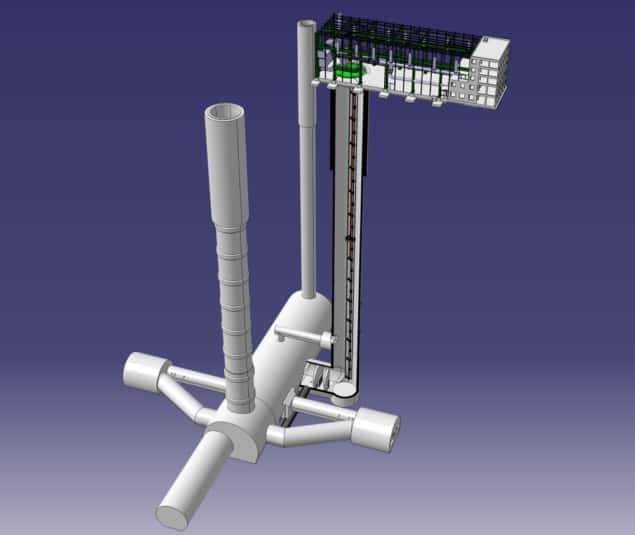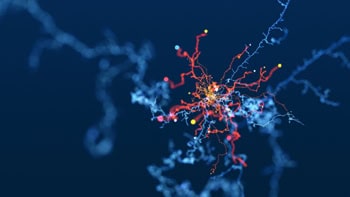
The CERN particle-physics laboratory near Geneva could be an ideal location for a next-generation atom interferometer. That is according to an international collaboration of researchers who say that the experiment could be used to study gravitational waves as well as search for ultra-light dark-matter particles (arXiv:2304.00614).
Atom interferometers measure the interference patterns between the quantum states of atoms just as light interferometers measure the interference pattern between photons. As these “matter waves” travel more slowly than light, the waves’ phases change over longer periods of time, which usually requires experiments at least 10 m long.
Next-generation atom interferometers with lengths of up to 100 m could, however, be sensitive enough to detect ultra-light dark-matter particles or gravitational waves with frequencies that currently cannot be accessed. Such experiments are already on the drawing board at Fermilab in the US, the Laboratoire Souterrain à Bas Bruit in France, Zhaoshan in China and the Boulby Underground Laboratory in the UK.
An international group of researchers has now proposed to build such an experiment in an underground tunnel belonging to the Large Hadron Collider (LHC) at CERN. It would be located in one of the deep vertical access shafts that is currently used to transport equipment to the LHC. The shaft is wide enough to host the experiment while not interfering with the movement of kit to and from the LHC.
CERN members of the team believe that the environmental requirements for the experiment – including the vibration, noise and magnetic and radio-frequency shielding – would be low enough to not interfere with the sensitivity of the experiment.
“As one of the largest and best-equipped scientific laboratories in the world, CERN would be a natural place to host one of the 100 m prototype quantum detectors” says Oliver Buchmueller from Imperial College London. His team is helping to develop a roadmap for the technology, which could see one or more kilometre-scale detectors ready by the mid 2030s. European physicists propose huge underground gravitational-wave laboratory
While the main aim of the CERN experiment would be to search for dark-matter candidates and study gravitational waves at currently inaccessible frequencies, it could also help with tests of quantum mechanics. Such technology could even be used for space-based Earth-observation techniques that can monitor climate change.
John Ellis of King’s College London, who is part of the team, says it will now be vital to form a collaboration across disciplines to get the project off the ground. Mark Kasevich from Stanford University in the US, who was not involved in this proposal, thinks the project is feasible and exciting, but believes the biggest challenges will be scaling existing technologies, in particular the development of robust laser and high-flux atomic sources.



